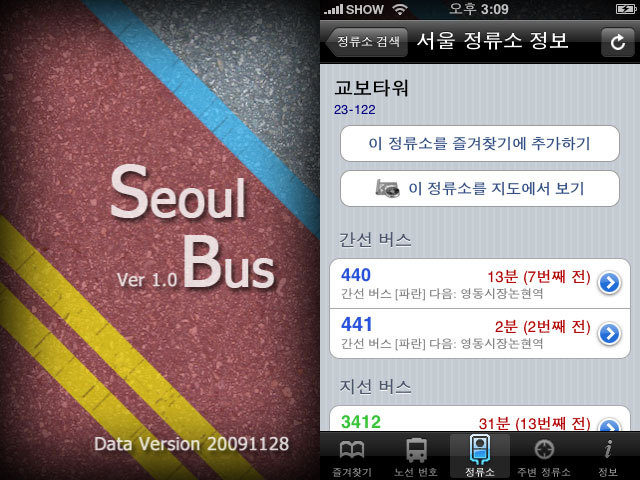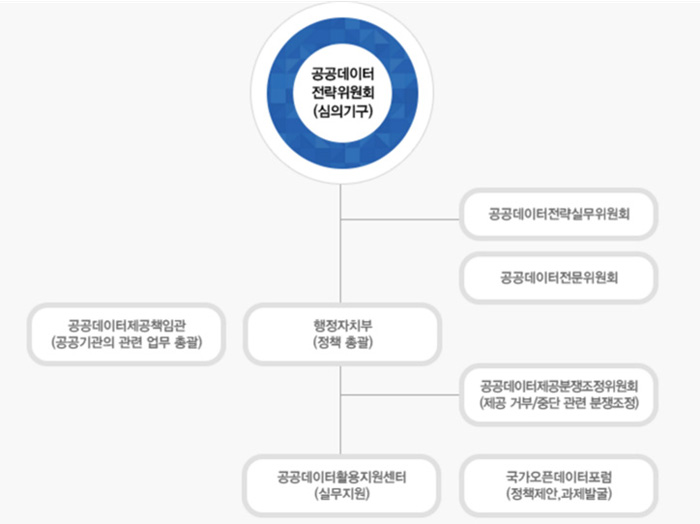
In 2009, a high school student developed the “Seoul Bus” app and provided it to iPhone users for free. The Seoul Bus app made it into one of the top free apps on the App Store in South Korea.
The Seoul Bus app was developed by tapping into the mass transit information held by a municipality. However, as the municipality imposed a restriction on the use of the app by reason of intellectual property right infringement, the use of the app was suspended. Citizens protested the municipality’s move and the Seoul Bus app became available again in just two days.
The incident prompted the South Korean government to think seriously about the effects of opening government data to the public, a movement that developed countries such as the US and the UK have been actively pushing for.
The government reached a conclusion that opening up government data to the public would enhance government transparency, bring greater convenience to the public and thus lead to economic benefits.

The Park Geun-hye government adopted ‘Government 3.0: openness, sharing, communication, and collaboration’ as a new governance paradigm for innovating the government. To offer customized data services to the public, the government selected ‘opening up and utilization of government data’ as one of the key government strategies.
To forge ahead with the strategy, the government first enacted the 2013 Act on Promotion of the Provision and Use of Public Data in Oct. 2013. Based on the Act, the Open Data Strategy Council, co-chaired by Prime Minister Hwang Kyo-ahn and KAIST Professor Kim Jin-hyung, was launched. The Ministry of the Interior (MOI) has been taking charge of coordinating relevant policies; the Open Data Center has been set up inside the National Information Society Agency (NIA) to support implementation of open government data (OGD) policies. In addition, chief OGD officers have been designated and the Open Data Mediation Committee was set up to expedite the opening up of government data.

Above all, Open Square D, a one-stop center for entrepreneurial support that assists startups in nurturing ideas into a business, was opened in January this year, therefore completing the government system for implementing OGD initiatives.
Entering the fourth year of pushing for OGD, the MOI is now poised to move ahead with a full-scale opening up of government data in 22 categories this year. In addition, the MOI plans to make high-quality government data available to the public by evaluating data quality control procedures.
And to make government efforts for OGD translate into startup creation, the government plans to identify and open up new classes of government data that are highly relevant to the daily lives of the public and continue to offer government support for OGD nationwide.


